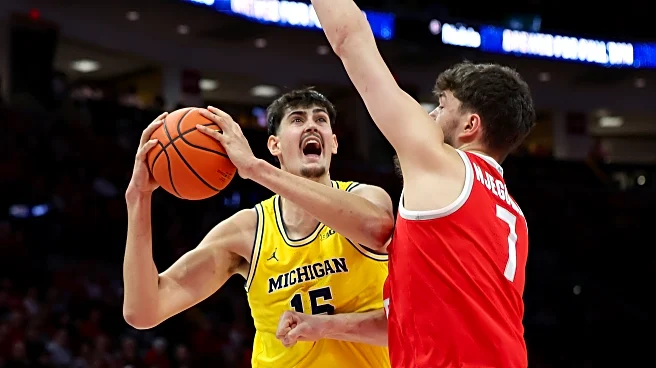What is the story about?
What's Happening?
Immigration and Customs Enforcement (ICE) has clarified details regarding a program offering cash assistance to unaccompanied minors who choose to self-deport. This clarification comes amid allegations that the Trump administration is attempting to broker deals with these children. An ICE spokeswoman denied the existence of a so-called 'Freaky Friday' program, a term allegedly created by anti-ICE activists. The agency stated that the program is voluntary and financial assistance is provided only after the children return to their native countries. Immigration attorney Laura Smith, representing four Guatemalan teens, criticized the program, suggesting that any assistance should be offered through legal channels and in consultation with the children's attorneys. The Trump administration has argued that the Guatemalan government requested the return of these children, citing concerns over trafficking, but a federal judge found no evidence supporting this claim.
Why It's Important?
The clarification of ICE's program highlights ongoing tensions and legal battles surrounding U.S. immigration policies, particularly those affecting vulnerable groups like unaccompanied minors. The program's existence and the administration's approach have sparked criticism from legal advocates who argue that such measures may not adequately protect the rights and welfare of children. This situation underscores broader debates about the ethical and legal responsibilities of the U.S. government in handling immigration and deportation, especially concerning minors. The outcome of these legal challenges could influence future immigration policies and the treatment of unaccompanied minors in the U.S.
What's Next?
The legal proceedings involving the Guatemalan teens are ongoing, with a temporary restraining order currently preventing their deportation. The case's outcome could set a precedent for how similar cases are handled in the future. Additionally, the public and legal scrutiny of ICE's practices may lead to policy reviews or changes in how the agency manages unaccompanied minors. Stakeholders, including immigration attorneys and advocacy groups, are likely to continue monitoring and challenging policies they view as harmful to children's rights.

















